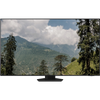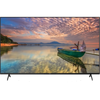A comparison of specs, key information, reviews, and best pricing from top retailers
Last updated -- hours ago | Report incorrect information
What we think

The PerfectRec TV team Learn more
Updated January 10, 2024·
The Samsung QN85B offers a better overall picture quality and gaming experience, making it a good choice for those interested in playing video games or wanting a sharper image. However, it is usually more expensive than the Sony X80K. The Sony X80K, on the other hand, costs less but performs better with sports content. If a bright room is a concern, the Samsung QN85B may perform better due to its higher bright room score, but it won't offer as good a viewing angle as the Sony X80K. Consider these aspects when making your decision. Give Feedback
this description is based on the product variant with some specs and product variant with some specs. At the time of writing, the variant with some specs cost some dollars and the variant with some specs cost some dollars.
Advantages of the Samsung QN85B (LCD)
- Excellent for bright room
- Good for dark room
- Very good for gaming
- Good for movies & TV
- Very good for news, talk, & other TV
- Very good for cartoons & animation
- Very good for use as monitor
- Very good reflections
Advantages of the Sony X80K (LCD)
- Best in class for upscaling
- Best in class motion processing
Key differences
Picture Quality
7.5
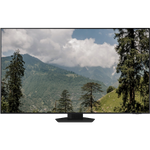
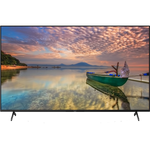
6.0
5.64/10
CONTRAST
5.06/10
7.5/10
COLOR VOLUME SCORE
6.6/10
miniLED FALD
PANEL TYPE
LED
IPS
PANEL SUB-TYPE
IPS
The Samsung QN85B (LCD) has good picture quality, while the Sony X80K (LCD) has only fair picture quality.
Movies & TV
7.3


5.5
5.64/10
CONTRAST
5.06/10
5.7/10
BLACK UNIFORMITY
5.2/10
7.5/10
UPSCALING
10.0/10
Yes
HDR10 SUPPORT
Yes
Yes
HDR10+ SUPPORT
No
No
DOLBY VISION SUPPORT
Yes
The Samsung QN85B (LCD) is good for movies & TV, while the Sony X80K (LCD) is poor.
The Samsung QN85B offers superior contrast and local dimming compared to the Sony X80K, leading to better black uniformity and making it more suitable for movies and cinematic TV. While both TVs have good color accuracy and viewing angles, the Sony X80K's lack of local dimming and lower contrast means its black levels and shadow details are less impressive, which is crucial for cinematic content.
Gaming
8.2


5.8
8.0/10
RESPONSE TIME SCORE
6.2/10
10.0/10
INPUT LAG SCORE
8.7/10
8.0/10
MOTION PROCESSING
10.0/10
70.0/100
GAMING LOCAL DIMMING
0.0/100
9.0/10
GAME HDR BRIGHTNESS SCORE
6.3/10
The Samsung QN85B (LCD) is very good for gaming, while the Sony X80K (LCD) is poor.
The Samsung QN85B outperforms the Sony X80K in gaming mainly because it has a higher refresh rate and better response time, leading to smoother and more responsive gameplay. Additionally, the Samsung model has lower input lag which is crucial for gaming as it ensures that the time delay between pressing a button and seeing the result on the screen is minimal, making the gaming experience more immersive and enjoyable.
Cartoons & Animation
8.0


7.2
7.2/10
COLOR GAMUT SCORE
7.1/10
7.5/10
COLOR VOLUME SCORE
6.6/10
9.3/10
SDR BRIGHTNESS SCORE
7.5/10
7.9/10
COLORS OUT OF THE BOX SCORE
8.5/10
7.2/10
GRAY UNIFORMITY
8.0/10
The Samsung QN85B (LCD) is very good for cartoons & animation, while the Sony X80K (LCD) is good.
News, Talk, & Other TV
8.2


7.2
9.3/10
SDR BRIGHTNESS SCORE
7.5/10
7.5/10
UPSCALING
10.0/10
The Samsung QN85B (LCD) is very good for news, talk, & other TV, while the Sony X80K (LCD) is good.
The Samsung QN85B delivers excellent SDR brightness and good upscaling, making it suitable for bright room conditions and ensuring lower resolution content appears sharper, important when watching news or talk shows. Contrastingly, the Sony X80K, while rated as very good for upscaling, offering greater detail in lower quality content, has only good SDR brightness, which can limit its performance in very bright rooms, although it still produces very good colors straight out of the box.
Bright Room
9.2


6.4
7.5/10
VIEWING ANGLE
7.5/10
9.3/10
SDR BRIGHTNESS SCORE
7.5/10
8.9/10
HDR BRIGHTNESS SCORE
6.1/10
8.9/10
REFLECTIONS SCORE
6.0/10
The Samsung QN85B (LCD) is excellent for bright room, while the Sony X80K (LCD) is only fair.
Cost
$1,199


$798
$400
$600
$800
$1,000
$1,200
$1,400
$1,600
$1,800
The Samsung QN85B (LCD) has a price of $1,199 and the Sony X80K (LCD) costs $798.
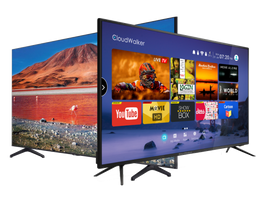
Let Us Help Find Your Perfect TV
Find your new TV
Key similarities
Sports
7.1


7.4
8.0/10
MOTION PROCESSING
10.0/10
120Hz
REFRESH RATE
60Hz
10.0/10
INPUT LAG SCORE
8.7/10
7.5/10
UPSCALING
10.0/10
9.3/10
SDR BRIGHTNESS SCORE
7.5/10
Yes
HLG SUPPORT
Yes
The Sony X80K (LCD) and Samsung QN85B (LCD) are both good for sports.
The Samsung QN85B stands out for sports due to its very good response time and motion processing, ensuring fast-moving action is clear, and very good reflection handling, which reduces distractions from lighting. The Sony X80K also provides clear motion with good response time and excellent motion processing but doesn't handle reflections as well, potentially impacting viewing quality in bright rooms; however, both TVs offer similarly wide viewing angles, staying consistent when seen from the side.
Give feedback
We’re constantly working to improve.
How the Samsung QN85B (LCD) and the Sony X80K (LCD) compare to other TVs
Spec Comparison
| Samsung QN85B (LCD) | Sony X80K (LCD) |
GENERAL | |||
|---|---|---|---|
| Price | |||
$1,199 | $798 | ||
Brand | |||
Brand | Samsung | Sony | |
Release Date | |||
Release Date | March 2, 2022 | March 4, 2022 | |
Full name | |||
Full name | QN65QN85B | KD-65X80K | |
Screen Size | |||
Screen Size | 65" | 65" | |
Screen Resolution | |||
Screen Resolution | 4K | 4K | |
TV FEATURES | |||
|---|---|---|---|
Operating System | |||
Operating System | Tizen | Android TV | |
Sound Quality Score | |||
Sound Quality Score | 7.5/10 | 6.7/10 | |
NextGen Ready | |||
NextGen Ready | No | Yes | |
HDMI Ports | |||
HDMI Ports | 4 | 4 | |
Coax Ports | |||
Coax Ports | 1 | 1 | |
DISPLAY QUALITY SCORES | |||
|---|---|---|---|
Picture Quality Score | |||
Picture Quality Score | 7.6/10 | 6/10 | |
Bright Room Score | |||
Bright Room Score | 9.2/10 | 6.4/10 | |
Gaming Score | |||
Gaming Score | 8.3/10 | 5.9/10 | |
Movies & TV Score | |||
Movies & TV Score | 7.3/10 | 5.5/10 | |
Sports Score | |||
Sports Score | 7.2/10 | 7.4/10 | |
PHYSICAL | |||
|---|---|---|---|
Dimensions w/o Stand (H x W x D) | |||
Dimensions w/o Stand (H x W x D) | 32.6" x 56.9" x 1.1" | 32.9" x 57.2" x 2.8" | |
Dimensions with Stand (H x W) | |||
Dimensions with Stand (H x W) | 35.1" x 56.9" | 35.6" x 57.2" | |
Weight without Stand | |||
Weight without Stand | 52.2 lbs | 47.8 lbs | |
VESA Mount | |||
VESA Mount | 400x300 | 300 x 300 | |
DISPLAY | |||
|---|---|---|---|
Color Depth | |||
Color Depth | 10 bit | 10 bit | |
Black Frame Insertion | |||
Black Frame Insertion | Yes | Yes | |
Auto Low Latency Mode | |||
Auto Low Latency Mode | Yes | Yes | |
Contrast | |||
Contrast | 5.6/10 | 5.1/10 | |
Local Dimming | |||
Local Dimming | 8/10 | 2.5/10 | |
SOUND | |||
|---|---|---|---|
Speaker Setup | |||
Speaker Setup | 2.2.2 | 2.0 | |
Speaker Power | |||
Speaker Power | 60 W | 20 W | |
Dolby Atmos | |||
Dolby Atmos | Yes | Yes | |
DTS:X | |||
DTS:X | No | Yes | |
Shopping
Samsung QN85B (LCD)
See more
Dig into reviews and images
What Hi-Fi?
John Archer | February 2023
"Particularly key to this is the fact that black levels are unusually good, on a level we haven’t seen from any IPS TV before. Build quality is impressive too, with a gleaming silver metallic frame and stand, and enough heft to suggest plenty of quality innards. High dynamic range content jumps off the screen with enough luminosity and intensity to really sell what makes HDR special."
Sony X80K (LCD)
See more
Dig into reviews and images
Tom's guide
Matthew Murray | February 2023
"The Sony Bravia X80K is an inexpensive LCD TV that turns out pleasing visuals and is armed with a number of other desirable features. Sony’s robust internal processing, results in generally better picture quality than you’ll usually get for this price. In practice, the X80K is satisfying to watch. You’re not going to get as sumptuous a picture as you may with other TVs from Sony or other companies, but we didn’t encounter anything that looked bad on it."
Get a great deal on the Samsung QN85B (LCD) or the Sony X80K (LCD)
About Samsung
Samsung, a South Korean electronics manufacturer, holds the title of being the largest global TV vendor in terms of units sold. They offer a diverse lineup of TV products that cater to various budget ranges. A notable achievement in recent years is the development of Quantum Dots, a technology that enhances color reproduction, resulting in richer and more vibrant hues. Samsung TVs are well-regarded for their high manufacturing quality and user-friendly software, making them an excellent choice for consumers seeking an intuitive viewing experience.
About Sony
Sony stands as a highly experienced and widely trusted TV manufacturer, earning a reputation that surpasses all others. A Japanese company, Sony has been making TVs for far longs than it has been making Playstation game consoles. Sony's high-end TVs are often regarded as the ultimate choice for videophiles, representing the epitome of quality, albeit at a premium price point. Renowned for their advanced and precise motion handling, as well as their cutting-edge local dimming algorithms, Sony consistently delivers unparalleled performance in these areas. They include Google TV software with all their TV sets, which grants access to the largest selection of apps available and they also include Bravia Core which is a movie streaming platform specifically for Sony TVs that offers higher picture quality by using more bandwidth.
Give feedback
We're constantly perfecting our model
TV guides you might be interested in
More comparisons for you
FAQs
FAQs about TVs
Why trust us
This information was produced and vetted by the PerfectRec TVs team. We are a product research and recommendation organization that meticulously reviews and evaluates the latest TV information and makes it digestible for you.
By the numbers
385
TVs evaluated
33,110
TVs stats compiled
21
Proprietary TVs ratings developed
122,430
Recommendations made
18,365
Consumer hours saved
About the TV team
Joe Golden, Ph.D
CEO and TVs Editor
Joe is an entrepreneur and lifelong electronics enthusiast with a Ph.D in Economics from the University of Michigan.
Jason Lew
Staff Expert & Software Engineer
Jason is a staff expert and software engineer that has been making laptop recommendations for 7 years and moderates one of the largest laptop subreddits.
Chandradeep Chowdhury
Staff Expert & Software Engineer
Chandradeep is a staff expert and software engineer and expert in televisions and monitors. He’s been making monitor recommendations for ten years.
Jaime Roldán
TVs Expert
Jaime is a Colombia-based TV expert. He is an electronics engineer with 8 years of experience in the telecom sector and has been making TV recommendations for 12 years.
